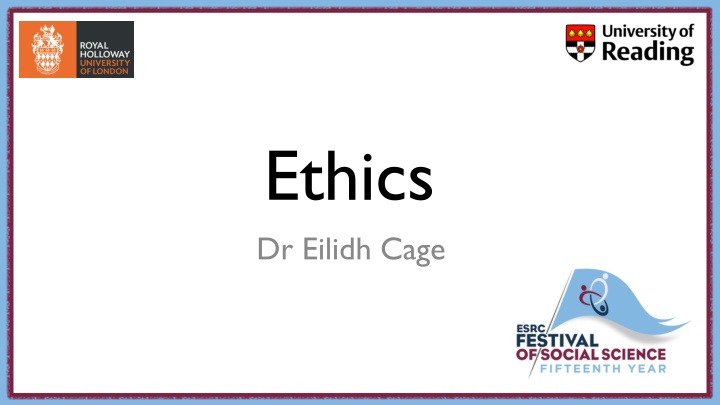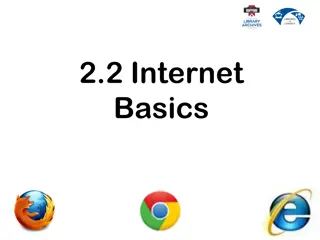
Understanding Ethics in Social Science Research
Explore the definition of ethics in social science, why ethics are important, BPS ethical principles, meeting ethical standards, informed consent, confidentiality, debriefing, and an interactive ethics worksheet.
Download Presentation

Please find below an Image/Link to download the presentation.
The content on the website is provided AS IS for your information and personal use only. It may not be sold, licensed, or shared on other websites without obtaining consent from the author. If you encounter any issues during the download, it is possible that the publisher has removed the file from their server.
You are allowed to download the files provided on this website for personal or commercial use, subject to the condition that they are used lawfully. All files are the property of their respective owners.
The content on the website is provided AS IS for your information and personal use only. It may not be sold, licensed, or shared on other websites without obtaining consent from the author.
E N D
Presentation Transcript
Ethics Dr Eilidh Cage
How do we define ethics? In social science, we can think of it as principles of conduct
Why should we care about ethics? Maintaining your/your organisations/social science s reputation Developing trust so people take part in research in the future Working with humans
BPS Ethical Principles Respect for the autonomy and dignity of persons Scientific value Social responsibility Maximising benefit and minimising harm See the full BPS ethical guidelines here
Meeting ethical standards 1. How can we ensure our participants are treated with respect? 2. How can we ensure high scientific quality? 3. How can we ensure our research is for good ? 4. How can we maximise benefits? 5. How can we minimise harm?
Informed consent Participants must give explicit permission to take part in full knowledge of all of the risks and benefits You should provide an information sheet and a consent form See the ethics worksheet for example information and consent forms
Confidentiality What can we do to ensure confidentiality? Assign ID numbers to participants Keep any identifying information separate Store data securely e.g. password protected or locked filing cabinet Collect data in a sensitive manner
Debriefing After the research, you should give participants a debrief Thank them for their time Clarify what the study was about and how their data will be used Give opportunity for further questions
Now its your turn... Worksheet: Ethics Feedback on form provided (e.g. swap with another group or teacher can provide feedback)






















